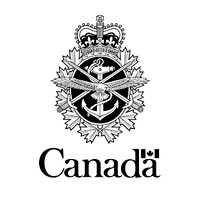Meteorological Technician
Canadian Armed Forces | Forces armées canadiennes
Date: 3 weeks ago
City: Fredericton, NB
Contract type: Full time

Overview
As a member of the military, Meteorological Technicians observe, brief on and forecast weather conditions in support of operations at Royal Canadian Air Force Wings and Squadrons, on Royal Canadian Navy Ships at sea and in Army facilities.
Their primary responsibilities are to:
Generally, meteorological observing offices are located near airfields. While much of a Meteorological Technician’s time is spent indoors in a weather office, duties require regular trips outdoors to observe and report on all types of weather phenomena. Meteorological Technicians work rotating shifts. In a Naval environment, they will work and live onboard a ship. If posted to an artillery unit, they will participate in field exercises under operational and combat conditions.
If you chose a career in the Regular Force, upon completion of all required training, you will be assigned to your first base. While there is some flexibility with regards to postings (relocations), accommodations can’t always be made, and therefore, you can likely expect to move at some point in your career. However, if you decide to join the Primary Reserve Force, you will do so through a specific Reserve unit. Outside of training, your chosen Reserve unit will be your workplace on a part time basis, and you will not be obligated to relocate to a different base. As part of the Primary Reserve Force, you typically work one night per week and some weekends as a minimum with possibilities of full-time employment.
Entry plans
The minimum required education to apply for this occupation is the completion of the provincial requirements for Grade 11, Secondary 5 in Quebec or equivalent, including:
Training
The first stage of training is the Basic Military Qualification course, or Basic Training, held at the Canadian Forces Leadership and Recruit School in Saint-Jean-sur-Richelieu, Quebec. This training provides the basic core skills and knowledge common to all trades. A goal of this course is to ensure that all recruits maintain the Canadian Armed Forces (CAF) physical fitness standard; as a result, the training is physically demanding.
Basic military qualification – land course
After Basic Training, Army recruits go to a Military Training centre for the Basic Military Qualification – Land Course for approximately one month, which covers the following topics:
As a member of the military, Meteorological Technicians observe, brief on and forecast weather conditions in support of operations at Royal Canadian Air Force Wings and Squadrons, on Royal Canadian Navy Ships at sea and in Army facilities.
Their primary responsibilities are to:
- Observe and record surface, marine and upper air weather conditions
- Process, analyze and interpret meteorological information
- Operate and maintain specialized meteorological instruments and equipment
- Brief wing, ship and land unit personnel on actual and expected weather conditions
- Forecast weather conditions
Generally, meteorological observing offices are located near airfields. While much of a Meteorological Technician’s time is spent indoors in a weather office, duties require regular trips outdoors to observe and report on all types of weather phenomena. Meteorological Technicians work rotating shifts. In a Naval environment, they will work and live onboard a ship. If posted to an artillery unit, they will participate in field exercises under operational and combat conditions.
If you chose a career in the Regular Force, upon completion of all required training, you will be assigned to your first base. While there is some flexibility with regards to postings (relocations), accommodations can’t always be made, and therefore, you can likely expect to move at some point in your career. However, if you decide to join the Primary Reserve Force, you will do so through a specific Reserve unit. Outside of training, your chosen Reserve unit will be your workplace on a part time basis, and you will not be obligated to relocate to a different base. As part of the Primary Reserve Force, you typically work one night per week and some weekends as a minimum with possibilities of full-time employment.
Entry plans
- Direct Entry Options
The minimum required education to apply for this occupation is the completion of the provincial requirements for Grade 11, Secondary 5 in Quebec or equivalent, including:
- Grade 11 applied math or math 526 / SN 5/TS 5; and
- Any chemistry or physics course at the Grade 11 or Secondary 5 level.
Training
The first stage of training is the Basic Military Qualification course, or Basic Training, held at the Canadian Forces Leadership and Recruit School in Saint-Jean-sur-Richelieu, Quebec. This training provides the basic core skills and knowledge common to all trades. A goal of this course is to ensure that all recruits maintain the Canadian Armed Forces (CAF) physical fitness standard; as a result, the training is physically demanding.
Basic military qualification – land course
After Basic Training, Army recruits go to a Military Training centre for the Basic Military Qualification – Land Course for approximately one month, which covers the following topics:
- Army Physical Fitness
- Dismounted Offensive and Defensive Operations
- Reconnaissance Patrolling
- Individual Field Craft
- Surface weather observations
- Recording and encoding weather data
- Measurement of surface and upper winds
- Operating meteorological instruments
- Weather communications
- Maintenance of weather equipment
- Weather briefing
- Navigator’s Yeoman
- Meteorological Inspector
- Automatic Weather Observation Systems
- Installation and maintenance of meteorological sensors and equipment
- Weather briefings
- Weather forecasting
- Aerological support
- Weather Service Specialist
- Meteorological Inspector
How to apply
To apply for this job you need to authorize on our website. If you don't have an account yet, please register.
Post a resume